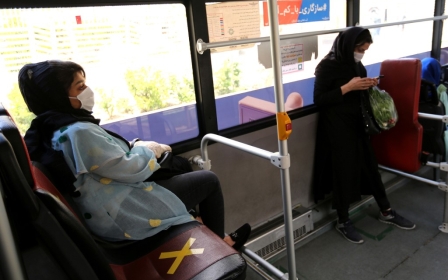Coronavirus: Iranian officials fear second wave of infections

Iranian officials warned of a second wave of infections on Saturday, as the government announced another 76 deaths from the coronavirus.
The Middle East's worst-hit country by the pandemic, had seen a reduction in cases through April - but officials fear the reopening of businesses over the past few weeks could lead to a fresh outbreak.
Alireza Zali, the capital Tehran's coronavirus coordinator, was quoted by IRNA news agency as warning that the "hasty" relaxation of restrictions could "create new waves of sickness in Tehran and complicate efforts to bring the epidemic under control."
The Iranian President Hassan Rouhani warned Saturday that the country needs to prepare for a "worst-case" scenario of restrictions lasting until March 2021.
"We should plan production based on a pessimistic view that we might face this virus until the end of the [Iranian] year," Rouhani said in a meeting with heads of Iranian private companies carried live on state TV.
Iran has blamed "cruel" US sanctions for deepening the impact the coronavirus has had on the country, calling for the international community to help counter the effects.
Health ministry spokesman Kianoush Jahanpour said Iran has now recorded 89,328 confirmed cases of Covid-19, including 1,134 over the past 24 hours, since its first case in February.
The number of casualties is widely thought to be much higher, however.
Jahanpour reiterated that social distancing and hygiene measures to guard against the novel coronavirus needed to remain in place.
The ministry's infectious diseases department head, Mohammad Mehdi Gouya, warned of "signs of a fresh outbreak" in provinces such as Gilan and Mazandaran in the north and Qom in central Iran, "where we made great efforts to control the epidemic".
Middle East Eye delivers independent and unrivalled coverage and analysis of the Middle East, North Africa and beyond. To learn more about republishing this content and the associated fees, please fill out this form. More about MEE can be found here.




